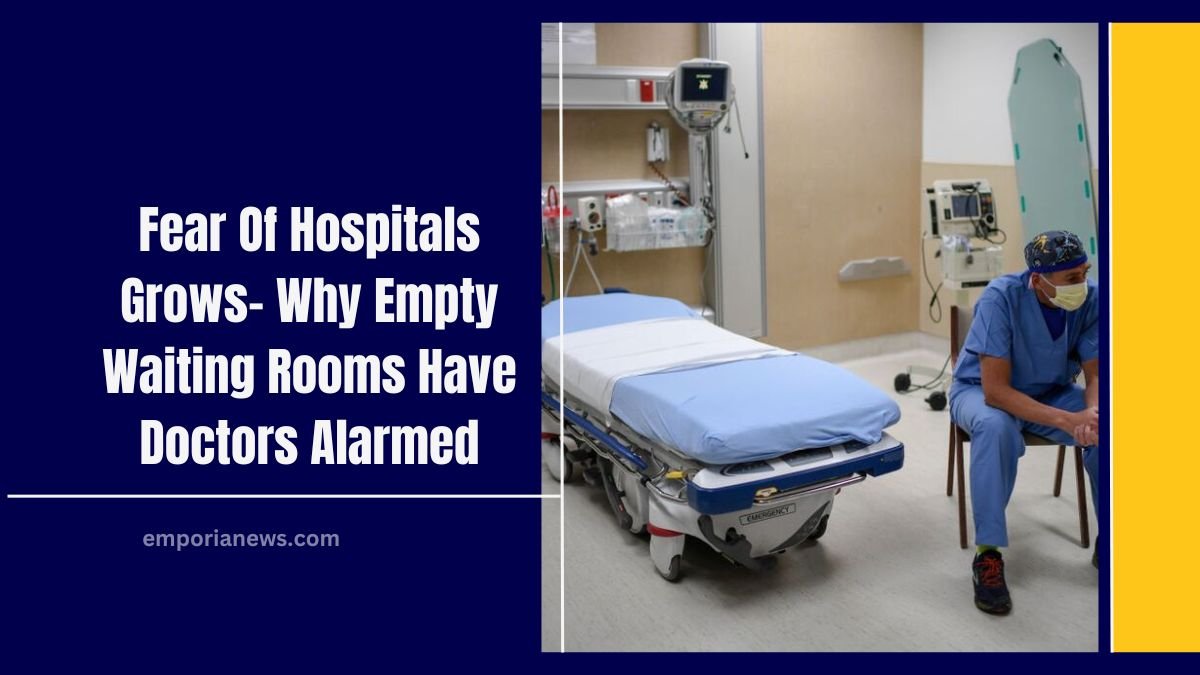In recent years, a growing number of individuals have become increasingly wary of hospitals, leading to empty waiting rooms and heightened concerns among healthcare professionals.
This trend is particularly pronounced among immigrant communities, where fears of immigration enforcement and deportation have deterred many from seeking necessary medical care.
The Impact of Immigration Policies on Healthcare Access
The revocation of guidelines that previously designated hospitals as “sensitive locations”—areas where Immigration and Customs Enforcement (ICE) operations were restricted—has intensified these fears.
This policy change has led to a noticeable decline in hospital visits among immigrants, as many fear that seeking medical attention could expose them to immigration authorities.
Barriers to Healthcare for Immigrants
Several factors contribute to the reluctance of immigrants to seek medical care:
- Fear of Deportation: The possibility of encountering ICE agents in healthcare settings has led many undocumented immigrants to avoid hospitals altogether.
- Language Barriers: Limited proficiency in English can make navigating the healthcare system challenging, leading to misunderstandings and decreased utilization of services.
- Financial Constraints: Many immigrants lack health insurance and face financial challenges, making medical care unaffordable.
Consequences of Delayed Medical Care
Avoiding medical care can lead to severe health complications, including:
- Worsening of Chronic Conditions: Without regular check-ups, chronic diseases like hypertension and diabetes can progress unchecked.
- Delayed Diagnosis: Early detection of illnesses is crucial for effective treatment. Delays can result in more advanced stages of disease.
- Public Health Risks: Unaddressed health issues can contribute to the spread of infectious diseases within communities.
Healthcare Providers’ Response
Healthcare institutions are taking steps to address these concerns:
- Policy Development: Hospitals are creating guidelines to manage interactions with ICE agents, balancing legal obligations with patient confidentiality.
- Community Outreach: Efforts are underway to educate immigrant communities about their rights and the importance of seeking medical care without fear.
- Language Services: Providing translation and interpretation services to overcome language barriers and improve patient understanding.
| Barrier | Description |
|---|---|
| Fear of Deportation | Anxiety about encountering immigration authorities in healthcare settings. |
| Language Barriers | Difficulty communicating due to limited English proficiency. |
| Financial Constraints | Lack of health insurance and inability to afford medical services. |
| Misinformation | Belief that seeking medical care could lead to deportation or legal consequences. |
| Cultural Differences | Unfamiliarity with the healthcare system and differing beliefs about medical practices. |
The Role of Misinformation
Misinformation exacerbates the problem, as rumors of ICE raids in hospitals spread rapidly through communities, often via social media. Local news organizations are combating this by providing accurate information and resources to reassure the public.
Legal and Ethical Considerations
The rescission of the “sensitive locations” policy has sparked debate about the ethical implications of immigration enforcement in healthcare settings.
Healthcare professionals are advocating for clear policies that protect patient rights and ensure access to care without fear.
The growing apprehension toward hospitals among immigrant populations poses significant challenges to public health.
Addressing this issue requires a multifaceted approach, including policy reforms, community engagement, and the dissemination of accurate information.
By fostering an environment of trust and safety, healthcare providers can encourage all individuals, regardless of immigration status, to seek the medical care they need.




